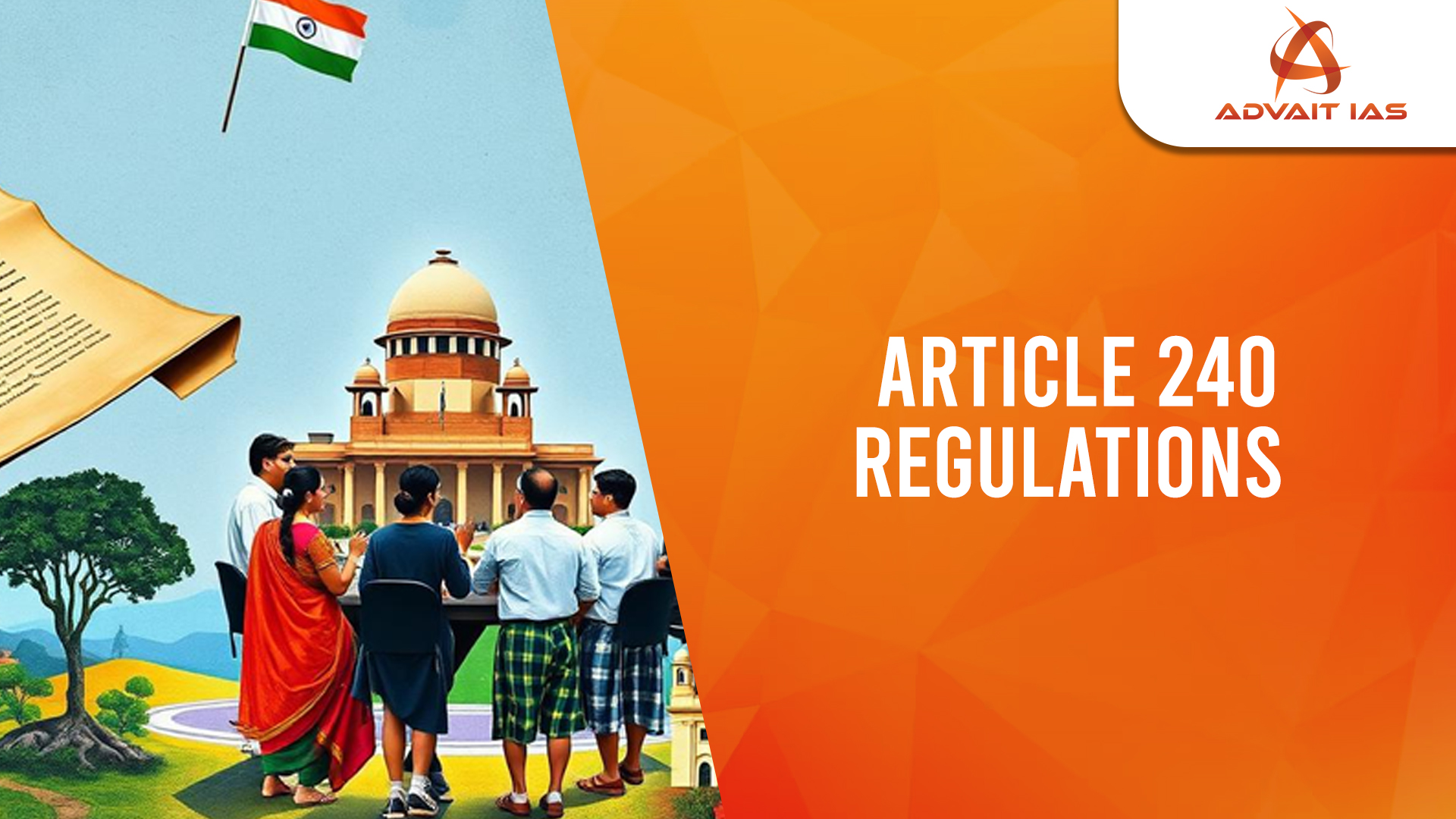The Union Government has issued special regulations for Ladakh under Article 240 of the Constitution. This move comes as a response to long-standing demands for job reservations, language recognition, and political representation by the people of Ladakh.
- However, Ladakh was not granted the Sixth Schedule status, which was the key demand of local groups.
Article 240 of the Constitution
- Empowers the President to make regulations for the peace and good governance of certain Union Territories (including Ladakh).
- Such regulations have the force of parliamentary law and can amend or repeal existing laws in the UT.
Reason for the Demands:
- Post the abrogation of Article 370 (August 2019), Ladakh was made a Union Territory without a legislature under the Jammu and Kashmir Reorganisation Act, 2019.
- Two key local bodies emerged:
- Leh Apex Body (LAB)
- Kargil Democratic Alliance (KDA)
- Both bodies have been demanding constitutional safeguards for Ladakh’s land, jobs, and cultural identity.
Key Demands by the People of Ladakh
- Inclusion under the Sixth Schedule of the Constitution.
- Land ownership restrictions to prevent outsider influx and protect tribal land.
- Creation of a Legislative Assembly to ensure self-governance.
- Protection of local culture and language.
- Alternatively, the Centre proposed Article 371-like protections.
Key Government Regulations Issued for Ladakh
1. Domicile-Based Job Reservation
- First-time introduction of domicile-based reservation for all government jobs in Ladakh.
- Eligibility Criteria:
- 15 years of residency, or
- 7 years of schooling with appearance in Class 10 or 12 from Ladakh.
2. Reservation Provisions
- Total reservation for SCs, STs, OBCs and other backward classes capped at 85%.
- Additional 10% EWS reservation remains intact.
- Provisions extended to professional college admissions (engineering, medical, etc.).
3. Preservation of Local Languages
- Official languages: English, Hindi, Urdu, Bhoti, Purgi.
- Promotion of minority languages: Shina, Brokskat, Balti, Ladakhi to preserve linguistic diversity.
4. Women’s Representation
- One-third reservation for women in the Ladakh Autonomous Hill Development Councils (LAHDC) of Leh and Kargil.
- Implemented via amendment to the LAHDC Act, 1997.
The Centre’s move under Article 240 is a step toward addressing Ladakhi concerns, but falls short of the constitutional protections the people are demanding. There is a growing call for a more democratic and inclusive mechanism, potentially via dialogue-based constitutional amendments to grant Sixth Schedule or equivalent status.






